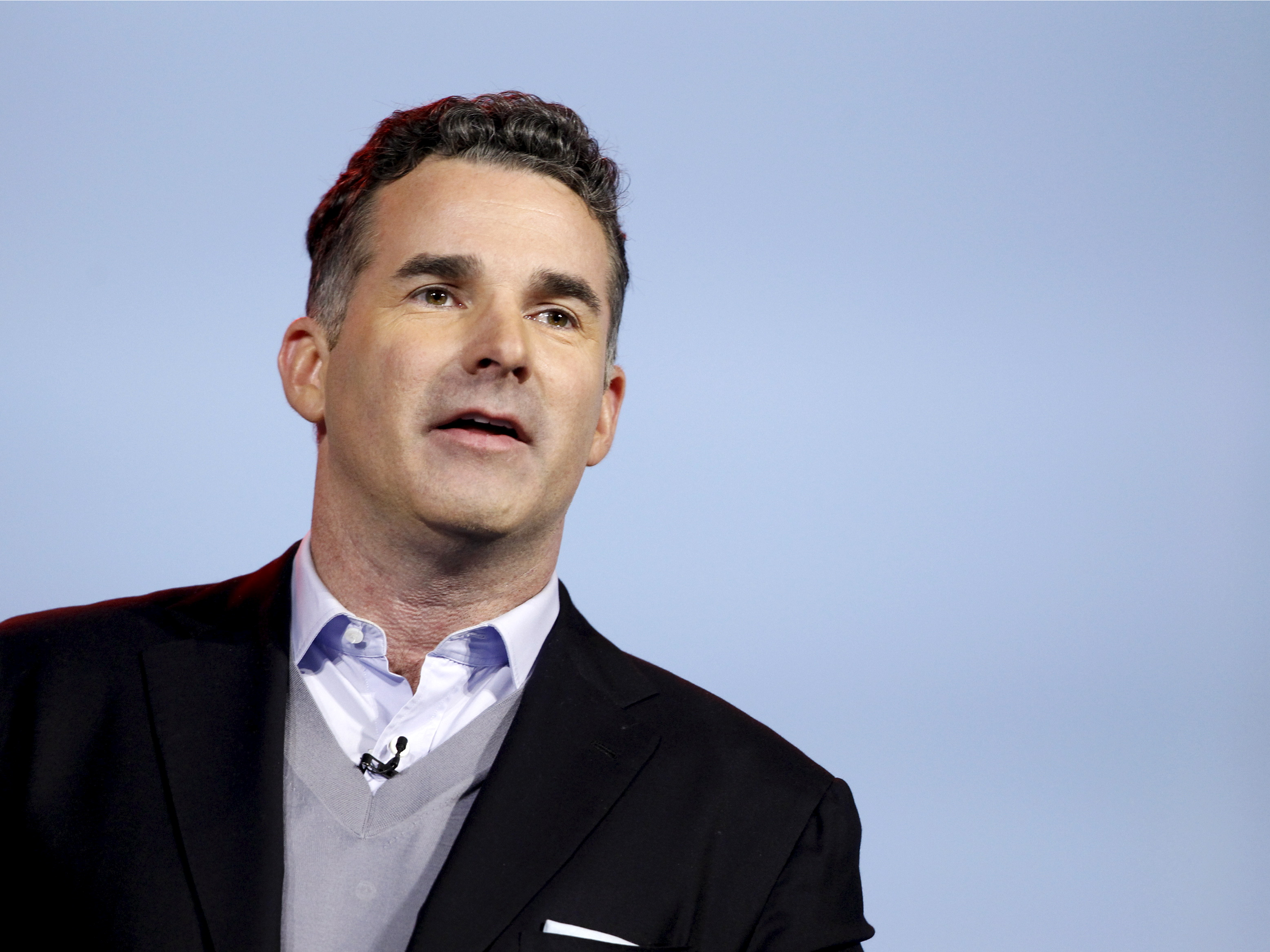- Kevin Plank founded Under Armour, a leading athletic-wear brand, 23 years ago in his grandmother’s basement.
- On October 22, Under Armour announced that Plank would be stepping down from his role as CEO and will be replaced by COO Patrik Frisk on January 1. Plank will become the executive chairman and brand chief.
- On November 4, the Wall Street Journal reported that Under Armour is under federal investigation to determine whether the brand altered its recorded revenue to bolster its healthy appearance. In a statement, Under Armour said it is cooperating with the probe.
- On November 15, Business Insider obtained a rallying email Plank sent to Under Armour employees responding to another WSJ report that alleged Under Armour “dumped goods” at off-price chains like TJ Maxx to bolster sales growth.
- Plank has a net worth of $1.7 billion. Here’s a look at how he built Under Armour and how he spends his money.
- Visit Business Insider’s homepage for more stories.
On October 22, Under Armour announced that founder Kevin Plank would be stepping down from his role as CEO. Effective January 1, he will be replaced by Patrik Frisk, the company’s current president and chief operating officer.
According to the statement, Plank will become the executive chairman and brand chief at Under Armour, a company he founded in his grandmother’s Washington D.C. basement in 1996.
Two weeks after the announcement of Plank’s departure from his role, the Wall Street Journal reported that federal authorities are investigating Under Armour’s accounting practices. According to the Journal’s November 4 report, the company has been under Justice Department and SEC investigations since 2017 for its revenue disclosure practices.
“The company firmly believes that its accounting practices and disclosures were appropriate,” a representative for Under Armour told the Journal. Under Armour is reportedly cooperating with the investigations.
In a November 14 report, the Journal alleged that Under Armour purposefully "pushed early shipments" and "dumped goods" at off-price stores such as TJ Maxx to bolster sales growth. Business Insider obtained an email Plank wrote to employees on Friday. "Given recent events that have entered the realm of public opinion without full context, it is disappointing to have our integrity and reputation called into question," Plank wrote.
"With respect to inquiries into Under Armour's business practices by the Securities and Exchange commission and the Department of Justice, we firmly believe that our disclosures and our accounting practices have been entirely appropriate," he reiterated. "We respect the government's process and will continue to cooperate with thoughtful and proper resolve."
Keep reading for a look at how Kevin Plank, who is worth $1.7 billion, built Under Armour and established his wealth - and how he spends it.
According to Forbes, Kevin Plank has a net worth of $1.7 billion. In 1996, Plank founded Under Armour; on October 22, he announced that he would be stepping down from his role as the company's CEO.

According to an April 2017 report from The Wall Street Journal's Sara Germano, Plank has taken an annual nominal salary of $26,000. According to the same report, Under Armour paid more than $73 million in 2016 to companies controlled by Plank.
Source: Under Armour, Forbes
Plank's road to Under Armour began after getting kicked out of a Washington D.C. prep school.
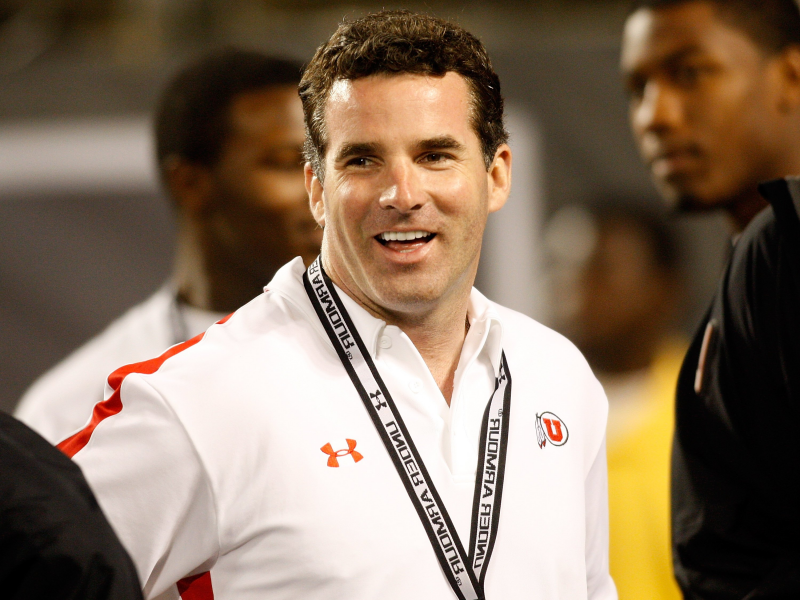
Plank, the youngest of five brothers, was kicked out of Georgetown Prep, a private Jesuit high school outside Washington D.C., for being involved in "an alcohol-fueled brawl" during his sophomore year.
He then attended St. John's College High, another Catholic prep school in the area, where he played football. He graduated at 17, and instead of going directly to college, he went to a military academy known for producing top football talent for one year.
Plank became a walk-on at the University of Maryland in College Park; it was there that he started focusing on the material of his football uniform.
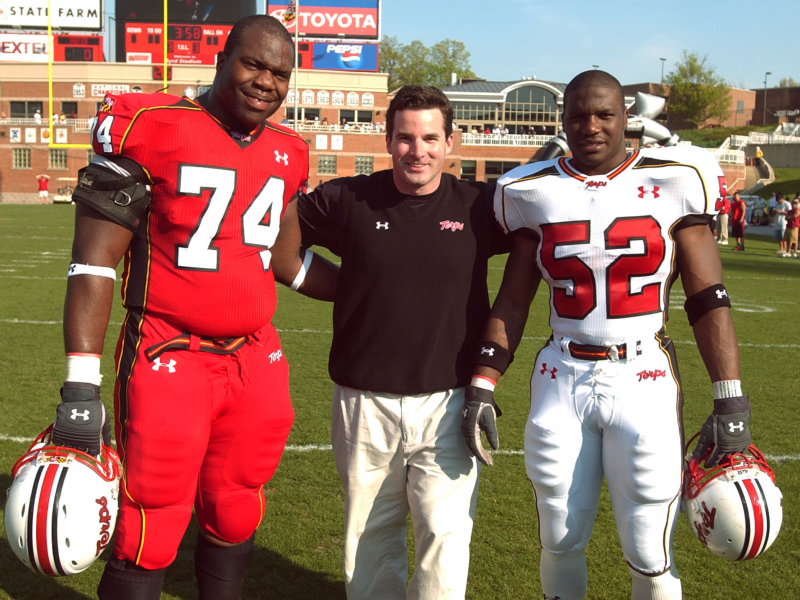
As Business Insider previously reported, he couldn't stand the way his cotton T-shirts became drenched up with sweat and bunched up under his gear, even though they were on trend for the 1990s.
In 1996, Plank developed the first prototype of a skin-tight base layer made from a sweat-wicking synthetic fabric. He started the entire operation in his grandmother's D.C. basement.

In a 2014 interview with the Washington Post, Plank said "I had about $15,000 in cash, and I had established pretty good credit. I had about $40,000 in credit cards," when asked about how he financed the company early on.
Source: Business Insider
Plank was able to get his business off the ground by selling his shirts to his football-playing contacts.
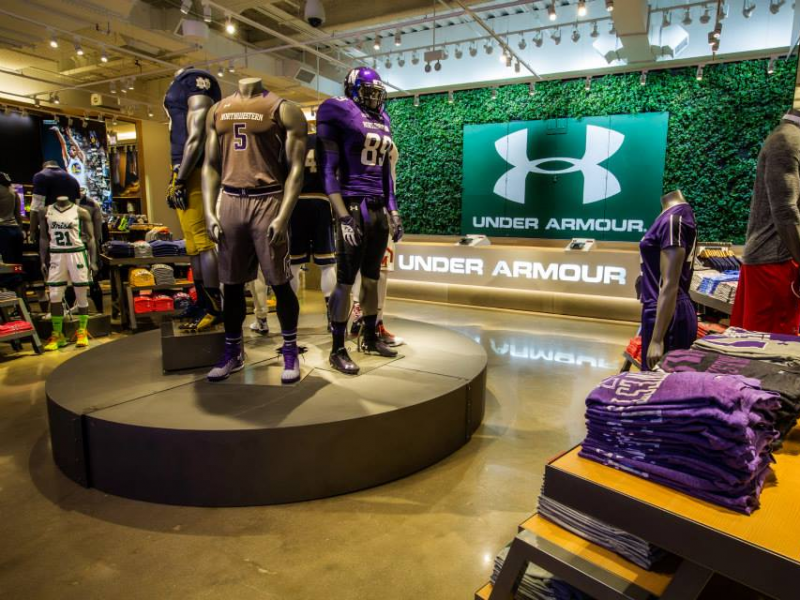
In the company's first year, 1996, it saw $17,000 in sales.
It wasn't long before college and professional players were wearing Under Armour; the company sales exceeded $200 million by 2004.
As the brand grew, Plank successfully positioned Under Armour through a variety of celebrity endorsements. Tom Brady, Gisele Bundchen, Cam Newton, and Misty Copeland are all tied to Under Armour.

Source: The New Yorker
As Business Insider has previously reported, Plank has been known not to name his competition directly. However, Under Armour has grown to be comparable to other mainstay athletic brands like Nike and Adidas.

While Under Armour's initial growth was rapid, it has slowed as of recent.
As Haley Peterson reported for BI, the company's revenue in 2018 grew just 4% over the previous year to $5.2 billion. For comparison, Nike grew 7.5% to $39.1 billion in its 2019 fiscal year.
Recently, Plank worked directly with Richard Branson to design and develop spacesuits for Virgin Galactic.
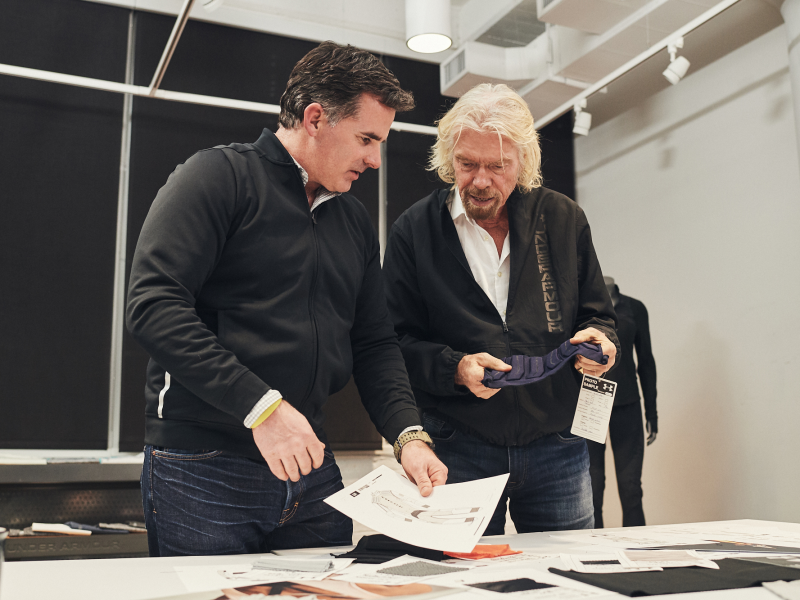
"I have followed Under Armour's progress through a personal friendship with its CEO, Kevin Plank and via the great relationships it has established over the years with various Virgin companies," Branson explained of the partnership in a January statement.
"I've loved its determination to push technical boundaries in order to improve performance, so could not have been more pleased when Kevin and his talented teams stepped up to the considerable task of creating a range of space apparel and performance programmes for Virgin Galactic," Branson continued.
Read more: Take a look at the Under Armour-designed spacesuits Virgin Galactic wants to send people to space in
In 2017, Plank sparked controversy after he praised President Trump in an interview.
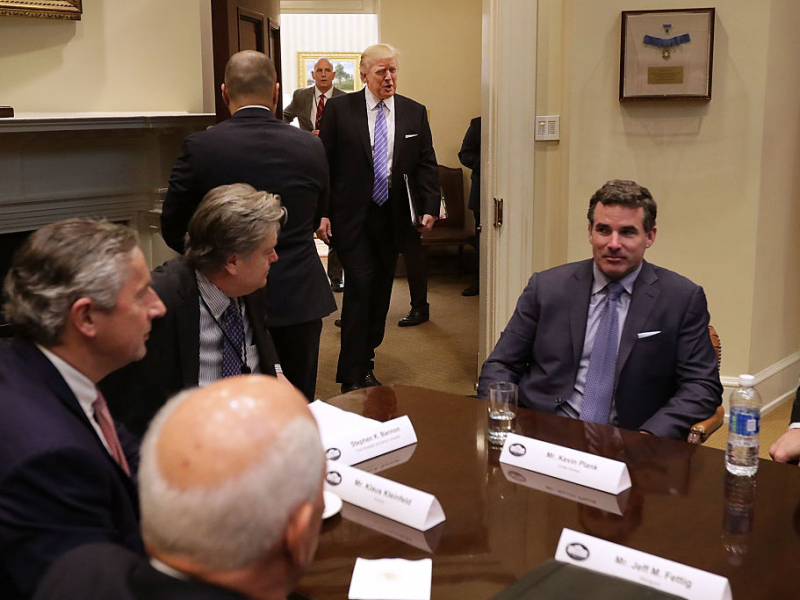
In an interview with CNBC, Plank said: "To have such a pro-business president is something that is a real asset for the country."
The comment caused waves and Under Armour ultimately issued a statement saying: "We engage in policy, not politics."
On other topics, however, Plank publicly disagreed with Trump. When the president referred to Baltimore as a "rodent infested mess," Plank took to Instagram to defend Under Armour's homebase.
Plank lives outside of Baltimore, Maryland with his wife of 16 years and their two children.
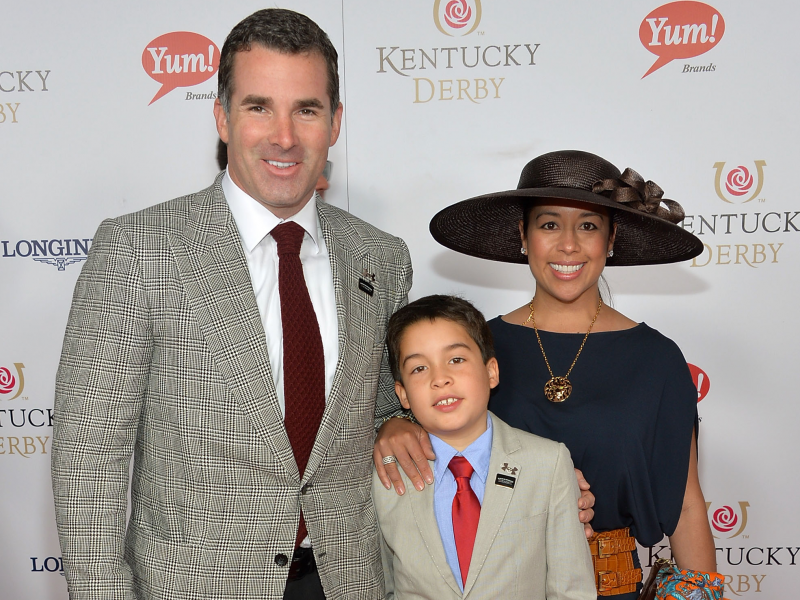
In February, The Wall Street Journal reported that sources had indicated that Plank had a very close relationship with an MSNBC anchor, Stephanie Ruhle. Ruhle and Plank had traveled together on his private jet and she had given him input on business matters, The Journal reported, citing executives and people familiar with the matter.
Plank and Ruhle alike declined to comment for the Journal's article. "Mr. Plank and Ms. Ruhle are friends," Under Armour's senior vice president of communications, told The Wall Street Journal at the time.
At one point, Plank's family listed the most expensive home in Washington D.C.

The completely renovated, 12,200-square-foot, eight-bedroom Georgetown mansion was put on the market in 2015 for $29.5 million, making it the most expensive home in D.C.
It did not sell and was put back on the market earlier this month at a 17% price cut for $24.5 million. The family does not live in the home and is selling, according to the Washington Business Journal, because they do not use it as often as initially anticipated.
The family lives outside of Baltimore, near Under Armour's headquarters. According to the Baltimore Sun, they were also building a home nearby, but construction was halted for unknown reasons last fall.
As The Wall Street Journal reported in February, Plank owns a company that leases a black Gulfstream jet to Under Armour.

According to The Wall Street Journal's Khadeeja Safdar, Plank "also uses the same aircraft for private travels."
While it's unclear what model Gulfstream the company owns, a new Gulfstream G700 just revealed in Las Vegas will have a list price of $75 million.
The family also has a privately held investment company called Plank Industries. Its holdings include an award-winning whiskey company.

According to the company's website, Plank Industries has holdings across several industries, including thoroughbred racing, hospitality, food and beverage, and commercial real estate.
Their company's key holding is Sagamore Spirit, a rye whiskey company that was named the world's best rye whiskey at San Francisco's World Spirits Competition.
Plank also owns Sagamore Racing Farm, a thoroughbred farm and training ground in Maryland previously owned by the Vanderbilts. He purchased and restored the farm in 2007.

Source: Sagamore Racing
Plank is stepping down as CEO but will act as the executive chairman and brand chief at Under Armour. Current COO Patrik Frisk will take up the duties of CEO on January 1, 2020.

"Patrik is the right person to serve as Under Armour's next CEO," Plank said in a statement. "As my partner during the most transformative chapter in our history, he has been exceptional in his ability to translate our brand's vision into world-class execution by focusing on our long-term strategy and re-engineering our ecosystem through a strategic, operational and cultural transformation."
Source: Business Insider
Frisk will helm a company that is currently under federal investigation.
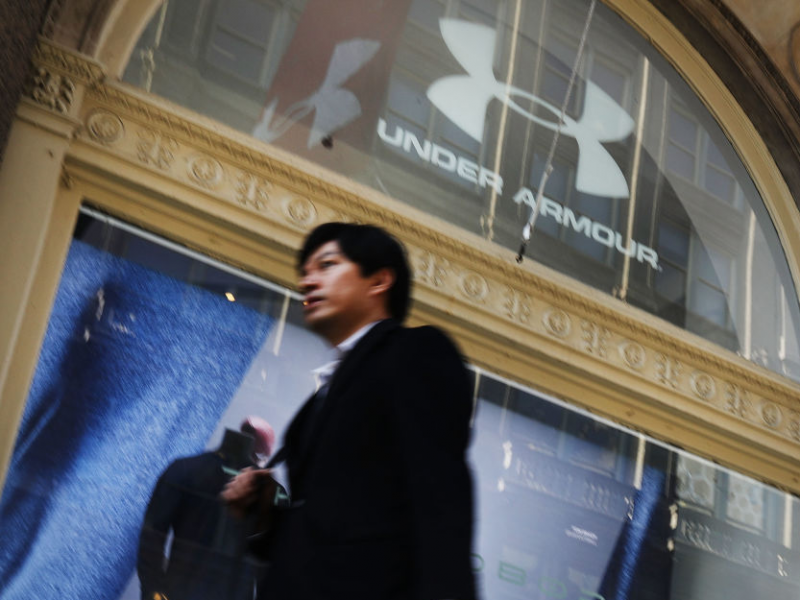
On November 4, the Wall Street Journal's Aruna Viswanatha and Khadeeja Safdar reported that the Justice Department and the SEC are investigating Under Armour for its accounting and revenue disclosure practices. The main question is whether the company altered recorded revenue from quarter to quarter to maintain a healthy appearance. The company told The Journal it is cooperating with the investigation.
The company began responding to requests for accounting-related documents in July 2017. A company representative told the Journal: "The company firmly believes that its accounting practices and disclosures were appropriate."
On Thursday November 14, the Journal released a report alleging that Under Armour "dumped goods" at off-price chains like TJ Maxx to boost sales growth. The report led Plank to send a company-wide email in response.
"Given recent events that have entered the realm of public opinion without full context, it is disappointing to have our integrity and reputation called into question," Plank wrote in the Friday email obtained by Business Insider.

